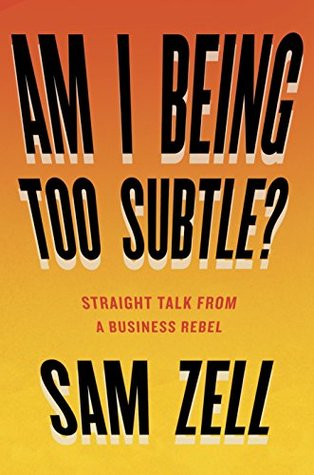More on this book
Community
Kindle Notes & Highlights
by
Sam Zell
Read between
January 31 - February 19, 2021
Where there is scarcity, price is no object.
As a result, I was cured of any inclination to become a developer. I think that to stay in that business, most developers must get 50 percent of their returns from real cash flow and the other 50 percent from the intangible benefit of seeing their phallic symbols rise out of the ground. Otherwise I can’t see the reward.
My takeaway was a whole new respect for simplicity. Development required multiple steps, and every step meant one more chance for something to go wrong.
a leader can’t let his emotions impact his stability. You have to have methods that keep you steady.
Liquidity equals value.
there is no more consistent source of capital than the public markets.
But as hard as it had been to raise the money, at first it was just as hard to invest it. We were so early that sellers had no idea what properties were worth, so they kept postponing their decisions. Finally, markets and values began to stabilize, and lenders became anxious to get real estate off of their books. I was the only buyer out there.
Incidentally, when the market crashed again twenty years later, in 2008, my phone rang off the hook with people eager to join me on a grave-dancing buying binge. For the next few years, I had to repeatedly explain that this was a whole different recession. I would not be raising a fund because there was no wave of grave-dancing opportunities in commercial real estate. With low to nonexistent interest rates, there was no cost to lenders to carry assets on their books. Now the real estate lending industry’s mantra was “Extend and pretend.” A rolling loan carries no loss. In other words,
...more
So, the first question is always “Who’s your partner?” By that I mean “Who is going to watch your interests on the ground every day?”
Some emerging markets will check all the boxes—strong population growth, growing middle class, verge of investment grade, great leadership, and hunger for capital—and then be missing the one ingredient that enables you to monetize your investment: scale. Without scale, you don’t have liquidity. You have no optionality. In essence, you’re stuck. Africa is a great example. I think many countries, such as Botswana, have potential, but the upper and middle classes are too small for me to get involved. Chile is another example. It has the institutions and leadership, but only 17 million people—no
...more
Today, the term “entrepreneur” has almost become synonymous with tech start-ups, but that’s a narrow definition in my view. I believe you can find entrepreneurs in every endeavor. It could be a start-up, but it could just as easily be within a conglomerate, in business, in academia, in medicine, in nonprofit, whatever. An entrepreneur is anyone who is independent, creative, inventive, and willing to take risks.
to make a meaningful impact, a philanthropic program—just like an investment—needs an owner.
Problem solving is my passion, whether the problem on the table is my own, a colleague’s, a friend’s, an employee’s, or my grandchild’s. Breaking the issues down to their barest elements, simplifying them. Finding that fulcrum.
“If you ain’t the lead dog, the scenery never changes.”
When I negotiate, I spend a lot of time thinking about the person across the table, their motivation and priorities. I work to understand which issues are the deal breakers for them—which three of the twenty things we’re discussing they really care about. And of course I’m crystal clear on the ones that are most important to me. That way we can both get what we want. It’s a win-win—the best kind of deal.
The minute you acknowledge that a problem is insurmountable, you fail. If you just assume there is a way through to the other side, you’ll usually find it, and you’ll unleash your creativity to do so.
This isn’t a dress rehearsal. I try to live full throttle.


